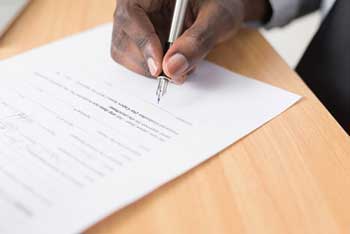You most likely have never heard of a Notary. Despite being the third and oldest branch of the legal profession, it’s a role which often goes under the radar. In this blog post, I’ll be giving you a quick overview on who we are and what we do. Firstly, it’s important to note that there are three main legal systems in the UK, the laws of England & Wales, Scotland and Northern Ireland. In our blog, we’ll be focusing on the role of the notary in England and Wales.

A notary is a qualified lawyer whose job is to prepare, witness or certify documents which are to be used abroad. The notary performs an act called notarisation which is considered a higher level of authentication due the notary’s training and experience. If doing business abroad, you will likely be asked to provide notarised documents for verification purposes.
The role of a notary differs according to jurisdiction; however, notarial acts are recognised worldwide. To perform the notarisation, the notary will set out in writing what they have verified, and this is termed the “notarial act”. This often takes the form of a certificate attached to the document but can also be written directly on the document. Where an individual is signing a document, the notary must verify the client’s identity, legal capacity and understanding of the document. If the client is signing on behalf of another individual or company, the notary must also verify the client’s authority to sign on their behalf.
A highly specialised area of law, there are currently only around 800 practising notaries. Most notaries are also practising solicitors, and to become a notary one must undergo a two-year notarial practice course followed by a period of supervision under an experienced notary. A notary is regulated by the Faculty Office of the Archbishop of Canterbury rather than the Solicitors Regulation Authority or Bar Council and is allowed to carry out all other types of legal work apart from litigation.
Hopefully the above gives you a glimpse into our world. Over the coming months we’ll be delving deeper into the notarial profession and exploring key issues relevant to our clients. Stay tuned!

